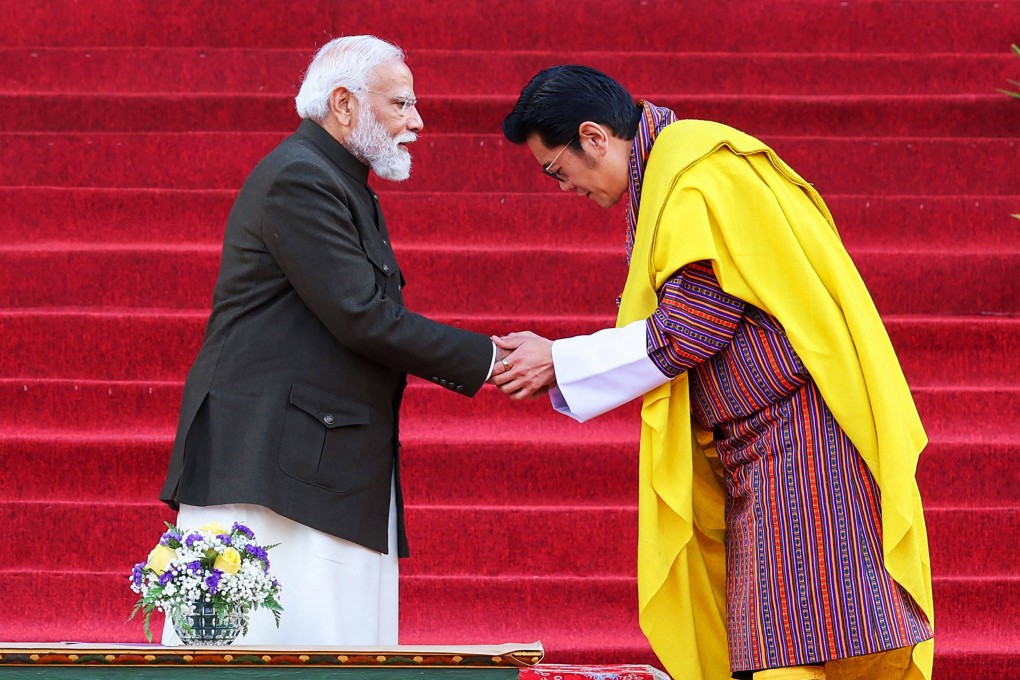Meetings with India could affect Bhutan’s border talks with China, analysts warn
- Recent reciprocal trips by Indian Prime Minister Narendra Modi and his Bhutanese counterpart, Tshering Tobgay, are said to strengthen ties between the two nations
- But they may disturb negotiations between Beijing and Thimphu concerning long-standing border issues that may involve land swaps

Analysts are warning about potential “obvious and direct” impacts on China’s efforts to resolve its long-running border dispute with Bhutan after India moved to shore up its influence on the Himalayan kingdom.
Last week, Indian Prime Minister Narendra Modi took a break from his re-election campaign and visited neighbouring Bhutan, during which he reaffirmed a partnership that “is not limited to land and water”.
The trip was reciprocal – Bhutanese Prime Minister Tshering Tobgay travelled to New Delhi a week earlier – but it is not common for Indian leaders to visit a foreign country before a general election, which is due to start on April 19.
Tobgay, who returned to power after January’s election having previously served as prime minister from 2013 to 2018, promised to strengthen ties with India, Bhutan’s key trading partner.

But Lin Minwang, deputy director of the Centre for South Asian Studies at Fudan University in Shanghai, said that the impact on Chinese-Bhutan border talks could be “obvious and direct”.